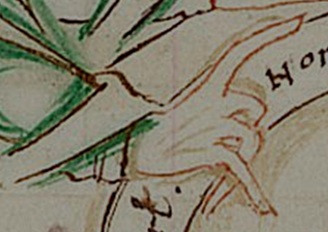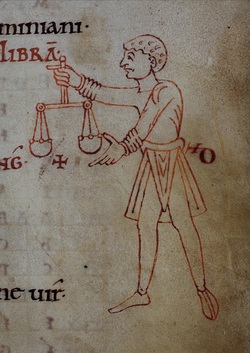5 Comments
Wonderful post & video links, Chris. I recently posted on my blog about penitentials and secular punishment for sexual sins in the Middle Ages so the Folio 1 reading is fascinating. Do you know if Æthelberht's Code reflects punishment for same-sex relationships? I'd read Boswell, who indicated there were no secular laws on the books in England until post-1250. I may need to revise my blog post!
Reply
Chris (the Anglo-Saxon Monk)
20/11/2014 07:30:46 pm
Hello Char. Thanks for leaving a comment. Neither AEthelberht's Code nor any other Anglo-Saxon secular law contain a direct reference to same-sex acts. The Anglo-Saxon penitentials on the other hand have numerous references to various same-sex acts, both male and female. Boswell, quite frankly, is very misleading in his evaluation of homosexuality in the early medieval period. The Church in England did not tolerate it. Some of the severest penances are for male homosexual acts, though the severity in certain cases depended a great deal on age. That said, the absence of secular legislation against homosexual acts may suggest a range of views prevailed in early England. An interesting comparison is the absence of laws against concubinage/polygyny until the 11th century despite canon law clearly forbidding all forms of concubinage. It would seem the Church's views on sex did not always dominate sexual discourse. I hope that's helpful. I will get around to doing a post on same-sex sexuality in AngloSaxon England. My PhD thesis had a chapter on the subject so I will try to convey some of my findings on the subject in the near future. Thanks once again for your response.
Reply
Would you mind if I quote you in a footnote to my blog post? I think is was Berkowitz or Karras who mentioned that Church canon often avoided mention of same-sex relationships in order to not breed curiosity about them. I do realize that many of Boswell's interpretations have been controversial. I'll look forward to your future posts on the topic. Thanks!
Chris *The Anglo-Saxon Monk
21/11/2014 06:18:02 am
No problem, please do. Please give a link to my website.
Reply
Exactly! I recall reading that - just telling someone about the sin might lead to experimentation! And you're right - this would make a hilarious Monty Python routine. :)
Reply
Leave a Reply. |
Details
|



